Child Labor and the Chocolate Industry
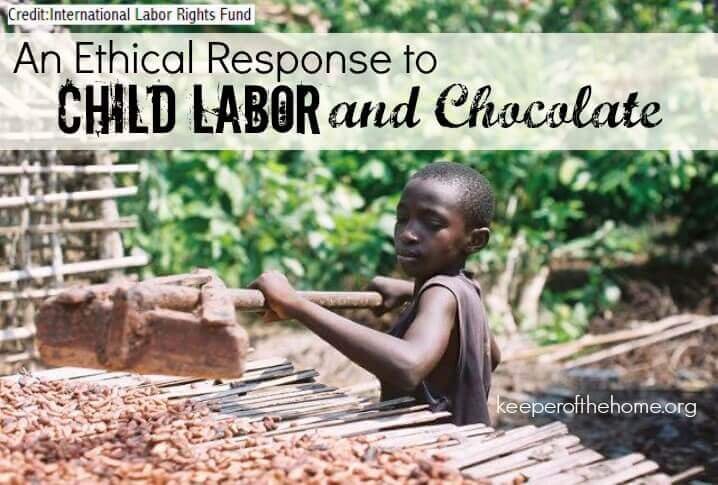
By Emily McClements, Contributing Writer
I settled in on the couch with my laptop and a few pieces of candy leftover from our Christmas stockings to watch two documentaries exposing the rampant use of forced child labor on cocoa farms on the Ivory Coast of Africa.
The candy I was savoring? You guessed it – mass-produced mini chocolate bars. My stomach churned as I realized the irony.
Chocolate. Rich and sweet and delicious. A luxury. And yet not really.
The average American consumes about 11 pounds of chocolate per year, and globally chocolate is an $83 billion-a-year business. (source)
But how to do we get to be so lucky; indulging our chocolate cravings abundantly and inexpensively?
Child Labor and the Chocolate Industry
In fact, our cheap, excessive chocolate habit does come at a price. A price paid for with the lives of exploited children.
The U.S. State Department estimates that 109,000 children work in “the worst forms of child labor” and 10,000 children are victims of trafficking or enslavement on cocoa farms in Ivory Coast, a country that produces 40 percent of the worlds chocolate supply. (source)
In one of the documentaries I watched as research for this post, Chocolate: The Bitter Truth, the investigative reporter sets out to purposefully buy cocoa beans from a farm using child labor. He then attempts to sell those beans to one of the major multi-national chocolate brands like Mars, Nestle, Hershey or Cadbury.
He also makes his own chocolate bar using the beans and creates a fake brand name with a label clearly stating that child labor was used to produce the chocolate. He takes his “Child Labor Chocolate Bar” and tries to sell it on the streets.
Image by John Loo/Flickr
People’s responses were unsurprising. They adamantly denied they would ever buy chocolate made by child labor, with horrified looks on their faces.
Wouldn’t our response be the same? Doesn’t the thought of young children harvesting cocoa beans so that you can enjoy your chocolate bar make your stomach turn and your heart ache?
Yet, if we’ve ever purchased chocolate from the major chocolate producing companies, we’ve most certainly purchased chocolate made from cocoa beans produced by child labor.
I understand it is tempting to stick our heads in the sand and pretend like we don’t know these atrocities are happening today, right now, somewhere in our world.
In the documentary, one of the ladies they talked to on the street was asked if she had ever purchased a chocolate bar before. “Of course,” was her reply, “but we don’t know about it (child labor).”
As if not knowing somehow absolves us from responsibility for the impact our choices have on the people–the children–who produce our chocolate.
No, not knowing about it is not an acceptable answer. Now we do know, and so we must respond.
An Ethical Response
I also understand feeling totally overwhelmed and completely inadequate to make any kind of difference in an issue as huge and global and complicated as this. I mean, really, most of us on our own (even if we really wanted to) do not have the power to change the standards of major chocolate companies.
We cannot make them commit to only buying child-labor-free cocoa beans. And most of us do not have the power to change government economic policies in our own countries, let alone countries on the other side of the world.
Image by globalexchange.org
We still have a choice, though.
We can choose to turn a blind eye to injustice toward God’s vulnerable children on the other side of the world.
Or, we can choose to change the way we purchase chocolate in a way that protects those precious children. That is something that is within our power.
Chocolate and coffee are not God-given rights (although most of us probably wish they were).
They are the luxuries of living in first-world, wealthy nations.
And our luxuries should not come at the expense and exploitation of vulnerable adults and children whose names we don’t know but whose faces we cannot erase once we have seen their suffering.
Because while the choice of what kind of chocolate (or coffee) we buy may seem like a small thing, it does have great significance.
Because it reflects the attitude of our hearts. We can either have an attitude of entitlement and selfishness, “Well, I like chocolate and I can’t afford fair-trade organic chocolate, so what do you expect me to do?”
Or our response can be compelled by a love for Christ and His people, wherever they may be in the world. “Yes, I do love chocolate and I wish I could have it every day. But I love and care about God’s people more. If it means I have to go without chocolate for a while so I can save to buy fair-trade chocolate, I will do that.”
Because our choices, however small they may seem, can have a great impact.
“Not all of us can do great things, But we can do small things with great love” – Mother Teresa
I encourage you to watch a documentary or two about the reality of child labor in the chocolate industry. The two I watched were Chocolate: The Bitter Truth and The Dark Side of Chocolate.
Put yourself in the shoes of the women whose children have been stolen and trafficked to become slaves in the cocoa industry. Put your children in the shoes of the children who are forced to work in dangerous conditions for little-to-no pay on the cocoa farms.
And ask yourself what you would want someone like you – a wealthy, first-world consumer to do.
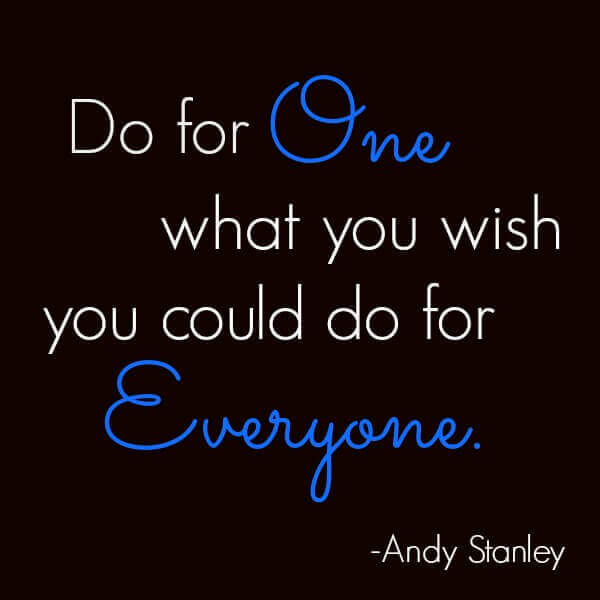
We Can Make a Difference
We may not be able to change the entire chocolate industry, but if we can make an impact in the life of just one child on a cocoa farm, isn’t that worth it? And maybe our dreams of changing the chocolate industry aren’t so far-fetched after all.
If all of us together seek out fair-trade alternatives for our chocolate we are telling the chocolate industry that we will not tolerate the exploitation of children to produce cheap, abundant chocolate. We are voting with our dollars.
And no, the fair-trade certification program is not perfect. But fair-trade chocolate is a giant leap in the right direction. And at this point it is a far superior alternative to buying mainstream chocolate just because fair-trade is not perfect.
And of course we respond to this issue, and so many others like it, with grace and love toward each other as we figure out what this means for us and our families, and what it looks like in our day-to-day lives.
Because truthfully, we cannot all do this perfectly all the time (as evidenced by my story at the beginning of this post!). But we can do the best we can, making changes as the choices come before us to live out our faith and love our neighbors on the other side of the world in a seemingly small yet extremely meaningful way.
How have you responded to learning about the issues related to child labor and slavery in the chocolate industry? Have your buying habits changed? Do you believe that your choices can make an impact?
For further reading and resources:


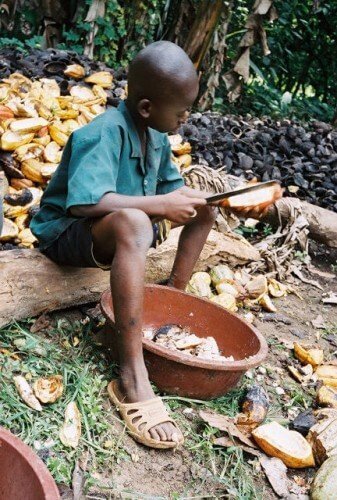
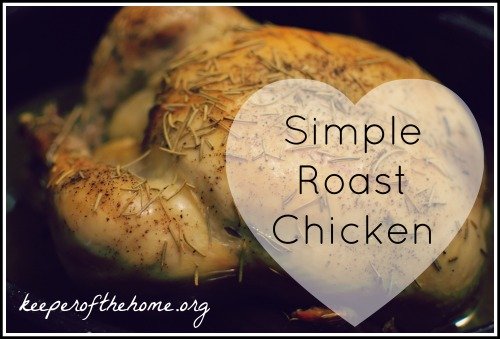
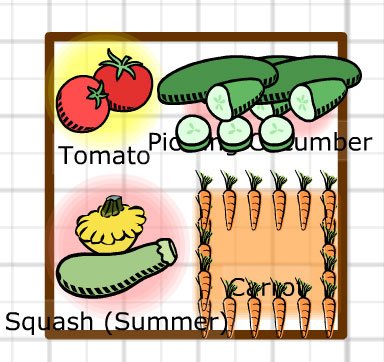
BRAVO. This is perfectly written, Em. I am totally giving you a standing ovation on this… it’s just SO well-done. Thank-you for going there, for not being ignorant, for becoming educated and convicted… and for encouraging us all to do the same. People like you make a difference in the world, and I’m proud to join you <3
I buy Theo’s chocolates (fair trade). It’s not only excellent tasting, but organic, ethical and made in my home town. It’s more expensive but gives me peace of mind.
This is great. I too have been convicted in the past several months of the need to eschew conventional chocolate. My problem is in how to communicate that to others without sounding (or being, in truth) self-righteous. You have done a great job of that here.
Thank you for writing this article. It was very well done. I think that we can actually solve this problem if we band together and demand that the candy companies move past their paltry PR attempts to pacify the public.
Excellent post, Emily! I love chocolate and almost didn’t want to read this because I knew I’d have to change things. But, you are so very right, we can’t just ignore this. And I love that quote, “Do for one, what you wish you could do for everyone.” Amen.
How do we know what chocolate is made without this child labor? Does every chocolate we buy need a Fair Trade stamp? I live in a median size town and have never noticed Fair Trade chocolate chips (only bars), so where does someone get those? Thanks so much for letting us know about this issue! My family loves chocolate chips, but not at such a large price tags. I never knew 40% was made in such a terrible way.
Hi Sarah – Part of the qualifications for Fair-Trade is that the cocoa beans must be child and slave labor free – you can read more about fair-trade certification here: http://fairtradeusa.org/products-partners/cocoa. Although Fair-Trade certified products are not always perfect, it is the best step in the right direction, so I would say yes, if you want to commit to only using chocolate that is child-labor free, all the chocolate you buy needs to be fair-trade certified. Your best bet for finding fair-trade items like chocolate chips, baking chocolate, etc. is to purchase online. Amazon does have some good fair-trade chocolate options and a quick Google search for something like fair-trade chocolate chips will give you lots of options to choose from. Another option is to ask your local grocery stores where you regularly shop to start stocking the fair-trade products that you want to buy. Tell them they are losing money because you have to order products online because they don’t carry them in your stores. This is another way we vote with our dollars, but telling stores the kind of products we want them to carry. Hope that helps!
~Emily
Well it will be different now! Thanks for the education 🙂
Wonderfully written! Thank you for sharing and bringing this to the forefront. You are right – with knowledge comes great responsibility…
I work for a chocolate company in Seattle called Theo Chocolate, the first certified organic and fair trade chocolate manufacturer in this country. They are now certified by IMO, an international third party certification that the company feels goes well beyond fair trade in its social awareness and sense of justice. I was not aware that human rights atrocities were so commonplace in the cocoa industry until I started working for Theo. They are really doing a great job educating their employees and the public about the food that they buy. Check it out!
http://www.theochocolate.com
I’m from Colorado and I love Theo chocolate! It’s awesome, especially dark with cherries & almonds. And, if you buy good quality chocolate, a little goes a long way to satisfy the chocolate craving.
Thanks for this article. I’ll be keeping it in mind.
It’s a sickening thought that our chocolate love has wrought such harm to children.
amazon.com carries lots of options and shipping is free with qualifying items.
Bravo. Love this!
Thank you for writing this – child slavery in all ways should be made known so it can be stopped. So please don’t think I say this next to be argumentative…but in checking the website for the Hershey company – They post their Corporate Social Responsibility (CSR) report, and to my untrained eye, they are moving in the right direction to be responsible in their purchases and adding additional benefits to the local communities where they source the chocolate…like farming class and technology centers. Now, they could be tooting their own horn and it may not be exactly as they say, I realize that. But if I can only treat myself to a bag of “cheap” candy…I don’ t this is as horrid an investment and a big company has big pockets and can use that to be very beneficial, if they choose. A smaller company may not have option financially….
I have been buying only fair trade chocolate for at least a year now. In terms of daily life, the biggest change is that we just do not buy chocolate chips anymore. I can’t find an affordable fair trade option, so I chop up chocolate bars. Other than that, I buy fair trade cocoa and use it to make my own hot cocoa mix, chocolate sauce, etc. It was a bit of an adjustment when I realized how many different chocolate items I buy but I’m used to making most of them now.
This is a challenging subject. I just watched The Help over the weekend. It made me think of the “blind eye” or “one person can’t make a difference” responses that are easy to use when something is challenging. Change often occurs when one person here and there make changes that then slowly grow into many.
Unfortunately too many Christians I know are aware of this, and choose to pretend their habits aren’t fueling the problem. I’m glad you’re sending this message out because it is one that so desperately needs heard! I buy one fair trade chocolate bar a week that my family all shares. Yes it’s a lot less chocolate for me, but it doesn’t burden my conscience.
I have mixed feelings on this documentary.
1. I don’t approve of slave labor be it a child or an adult
2. The West African Culture is very different than European or American culture
3. Many times it’s the families that are turning their children over to the Cocoa farmers to be used as slave labor. from the documentary it sounds as if the families think it will be better for their children to be slave labor since they are so poor.
4. They said that some of these cocoa farms are so remote that their is no school in the area.
5. Why should a child not be able to help on the cocoa farm with their parents when their is no school in the area? How are the parents suppose to send their kids to school if there is no school? How is that breaking child labor laws when their is not a school to send their child to?
6. back in the “old days” when my parents were children the schools closed so the kids could help with the harvest. I don’t think teaching children (that are not slave labor) the value of hard work is wrong.
7. I grew up on a farm and used an ax to chop wood from the time I could pick-up an ax. I obviously was not much help with chopping wood until I was older and stronger but I believe when kids grow up using dangerous objects most of them learn how to handle them and rarely hurt themselves with them. I have used knives, saws, scissors, & ax’s since I was little and so have my children. Our family also had a machete I don’t know why, I didn’t use it. I helped plant and harvest potatoes helped care for my parents many garden’s and I think I am a better person for learning to work.
8. Slave Labor is wrong, but I don’t think that this documentary was exactly fair considering the culture and how they do things and think in that culture.
9. I would pay more money for my chocolate to help the chocolate farmers to be able to pay their labors. And I think most people would be happy to pay more money for their chocolate knowing that it was the right thing to do and it was helping the conditions for the farms and their laborers.
10. If they did raise the price of chocolate so that the money was passed on to the Cocoa farmers how would they guarantee that the labors are getting paid and the farmer is not pocketing all the extra income?
Cindy, I do think these are good questions and some valid points. I do understand that West Africa has a different culture then we do, and in many cultures around the world children have to work to help support their families. I think the issue becomes when children are exploited to work on the cocoa farms – children are used because they are easy to control and manipulate. They are small and vulnerable, especially if they have been trafficked and are thousands of miles away from their families and their home culture, and in a country where they don’t speak the language. The farmers control them and force them to work for little to no pay.
One of the documentaries talked about how it would be okay for the children to work if they were also in school. And you make a valid point that maybe there aren’t any schools in the area. Buy why not? Why aren’t the large, billion-dollar corporations using some of their profits to support schools and education in the remote areas that supply their products? I believe much of the responsibility falls onto the corporations that produce the chocolate to do a better job of understanding their supply chain and helping to support the farmers and the workers that are at the very bottom of that chain – instead of just claiming ignorance – which is what many of the companies do.
That is why I believe in buying fair-trade chocolate. Many of the companies and organizations that work with fair-trade products are invested in helping the people and the communities where their products are grown. They are building schools, digging wells to provide clean water, paying farmers a fair and living wage. All of those things help to decrease poverty and the deeper issues behind child slave labor in those areas of the world. So, when you are buying fair-trade chocolate you are: 1) Boycotting the large chocolate corporations who do not claim responsibility for where their product comes for or how it is produced. Effectively voting with your dollars. And 2) Supporting companies and organizations that are not only producing fair-trade chocolate, but also working for the betterment of the people and communities where that chocolate is produced. Does that make sense?
Thanks for your comment,
~Emily
I’m switching all our chocolate over to fair trade. I recently discovered Costcos Kirkland brand of chocolate chips to be fair trade, and they are amazing! What about people who buy chocolate for our children (I.e., my in laws)? Do you bring it up around holidays?
Thanks for a great article. If you are looking for affordable fair trade chocolate chips, I found them at Azure Standard – 10 lbs for $52. Not too bad, and will last a long time!
We learned about this issue while working with Whole Foods. We make a chocolate cheese, that tastes like chocolate cheese cake , but after learning about this it wasn’t as good. We are a small business that just started in May. We decided to only use fair trade at no additional cost to our customers. This hasn’t been easy but we don’t need children being enslaved to give us a luxury item. We also try to buy only fair trade for our family. Habit sometimes gets the best if me. Recently I bought a chocolate cake mix for my daughter. She has learned to make cakes from scratch which she can do with fair trade coco but I was trying to be quick and frugal. The true cost of chocolate may have more selfish benefits, I do need to loose some weight. It is hard but if those sweet children were standing in front of us we would never say leave behind your family, freedom, and childhood and get me some chocolate. It’s real and our money is a great tool for social change.
I agree with what Cindy said. I too was struck by the fact that those mothers in the film basically admitted they couldn’t afford to take care of their own kids. I mean, on the one hand, it’s great if a big corporation wants to support the community of farmers who grow their raw materials. But on the other hand, is it really Nestle’s fault they don’t have schools or running water? It’s not like the company took away something that was already there. I have decided to switch to Fair Trade, but really, this problem goes way beyond the scope of this documentary. The problem is the absence of the rule of law in those countries.
Demi, Why shouldn’t Nestle (or any of the other huge chocolate corporations) invest some of it’s BILLION-dollar profits back into those areas? Can’t Nestle support building schools and digging wells in the communities that are producing a commodity they are making billions of dollars from? O if Nestle was paying their farmers a fair and living wage, surely some of that money would be used to invest back into the local economy for schools and infrastructure. Instead, the chocolate companies are exploiting vulnerable people who are already experiencing extreme poverty and injustice. Let’s not support companies who put profits over the welfare of the people producing their products.
~Emily
Emily, thanks so much for this post. Reading this has been the encouragement I needed to start buying fair trade chocolate. I already purchase fair trade coffee, but wasn’t willing to give up my favourite chocolate bars. A strong reminder of how chocolate (and coffee) are a luxury we’re blessed with and shouldn’t come at the expense of someone else’s freedom. Thankyou!
Fair trade chocolate is horrible the same as fair trade coffee. Give me the good old Cadburys Chocolate. People should mind their own business about the Cocoa industry. Fair Trade crowd must be getting kick backs selling junk. I will buy nothing with Fair Trade on it as it is not good quality.
To say that Fair Trade is inferior in quality is simply not true (In both coffee and chocolate). I’m sure that like any product some brands will be higher quality than others, but to lump them all as one and the same is a laughable over-generalization. Just like it would be silly to say that just because something is Fair Trade, it will automatically taste better.
And honestly, since I’ve switched to only buying Fair Trade (Theo’s being my favorite for chocolate bars), I find Cadbury and other mainstream chocolates to taste waxy. I will say that I’ve had a couple of no-brand, not-so-good FT chocolates from a local shop, but overall my experience has been good.